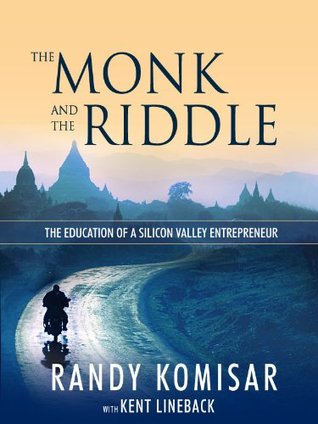More on this book
Community
Kindle Notes & Highlights
When we first left Mount Popa, I
wanted nothing more than to get to my destination, but now I don't have the slightest desire for this trip to end.
They have to be a little irrational, passionate beyond analysis. If they don't believe in the face of doubt, they'll never make it.
Ah, it was what I thought. VCs have no percentage in telling you “no” outright. A “no” from a venture capitalist is as rare as the “no” of a Japanese salaryman. Unless you mug the receptionist on the way out or spray graffiti all over their German sedans, VCs seldom turn you down outright.
VCs, I explained, want to know three basic things: Is it a big market? Can your product or service win over and defend a large share of that market? Can your team do the job?
Perhaps a billion-and-a-quarter-dollar Internet market was too big a guess, but one hundred million in sales suggested he wasn't headed for market leadership.
plans ordinarily promise that the new company will “dominate” its market.
If you don't see yourself as the leader, or you believe the on-line funeral business is pretty small, you won't get much interest.”
make that the ‘worst case’ in your plan.
Don't even try to do this if you aren't planning to take it all.
why is this a big idea?”
What kind of competitive
position will you have? What makes your products or services unique and compelling enough to ward off copycats? Can you stake out a significant chunk of your market and defend it? Or can someone reproduce what you're doing overnight?”
Where were the barriers to entry?
He was offering nothing that another competitor could...
This highlight has been truncated due to consecutive passage length restrictions.
“You and your team. Your first-mover status relies on rapid execution. That means the composition of your team is even more crucial than usual, because you won't have time to learn on the job.”
I was troubled by his and his partner's lack of startup experience. It heightens the risk.
Look at the progress they had made on everything within their control, such as the quality of the organization and the status of the product.
The principal use of the plan comes at the beginning, I explained, to show that the founders are intelligent, capable of structuring the business concept and expressing a vision of the future.
Later the plan can help track problems that may reflect on the startup strategy itself.
composition and experience of the team are something VCs will look at hard.”
The team would have to be intelligent and tireless. They would need to be skilled in their functional areas, though not necessarily highly experienced. Moreover, they would need to be flexible and capable of learning quickly.
If Lenny was relying on the VC to provide the startup experience his team lacked, he was confused about venture capitalists and their role.
Consequently most VCs (even if they insist otherwise) simply don't have the time to give close management attention to the companies they've funded.
They do bring connections and contacts to the aid of the companies they fund, in addition to money.
you have an idea, a cofounder, and a business plan. Nothing earthshaking or inherently valuable like an exclusive market or a key patent. No track record. You need to reset your expectations.”
what are the chances for failure or delay? And how much money would he ultimately need to be successful?
The lead VC is more likely to want around 40 percent of the deal for his money at this stage.
I caution a company not to take the largest valuation they can in a financing, because it sets the wrong expectations and probably attracts the wrong investors.
Peg the round at the highest reasonable price necessary to raise the desired amount from the right investors.
The right investors bring credibility, experience, and networks. They support you with enthusiasm in later rounds. They raise your valuatio...
This highlight has been truncated due to consecutive passage length restrictions.
“That's an exit strategy for your investors.
Is it one for you too?”
“Is that your personal exit strategy? Are you planning to get out?”
I provide the scarcest commodity of all, leadership and experience. I help the people build their ideas into successful businesses.
I support entrepreneurs as a kind of junior partner, a full member of the team, an owner and a decision maker,
I invest my time, and, in return, I receive an equity sta...
This highlight has been truncated due to consecutive passage length restrictions.
for a year, perhaps two.
we should be able to raise money, develop the product or service, identify the market, create a business model, prove out its basic tenets, and hire an operating team.
My role is to keep my head out of the cyclone and provide insight, direction, and stability.
raising money, setting strategy, building and leading teams, establishing strategic relationships, developing products and services and bringing them to market, doing deals.
“I need to understand why you're starting Funerals.com in the first place.”
“There's nothing wrong,” I said, “with cashing out and making a lot of money—unless those ‘other things’ you intend to get to are what you'd rather be doing all along.”
There must be something more, a purpose that will sustain you when things look bleakest.


